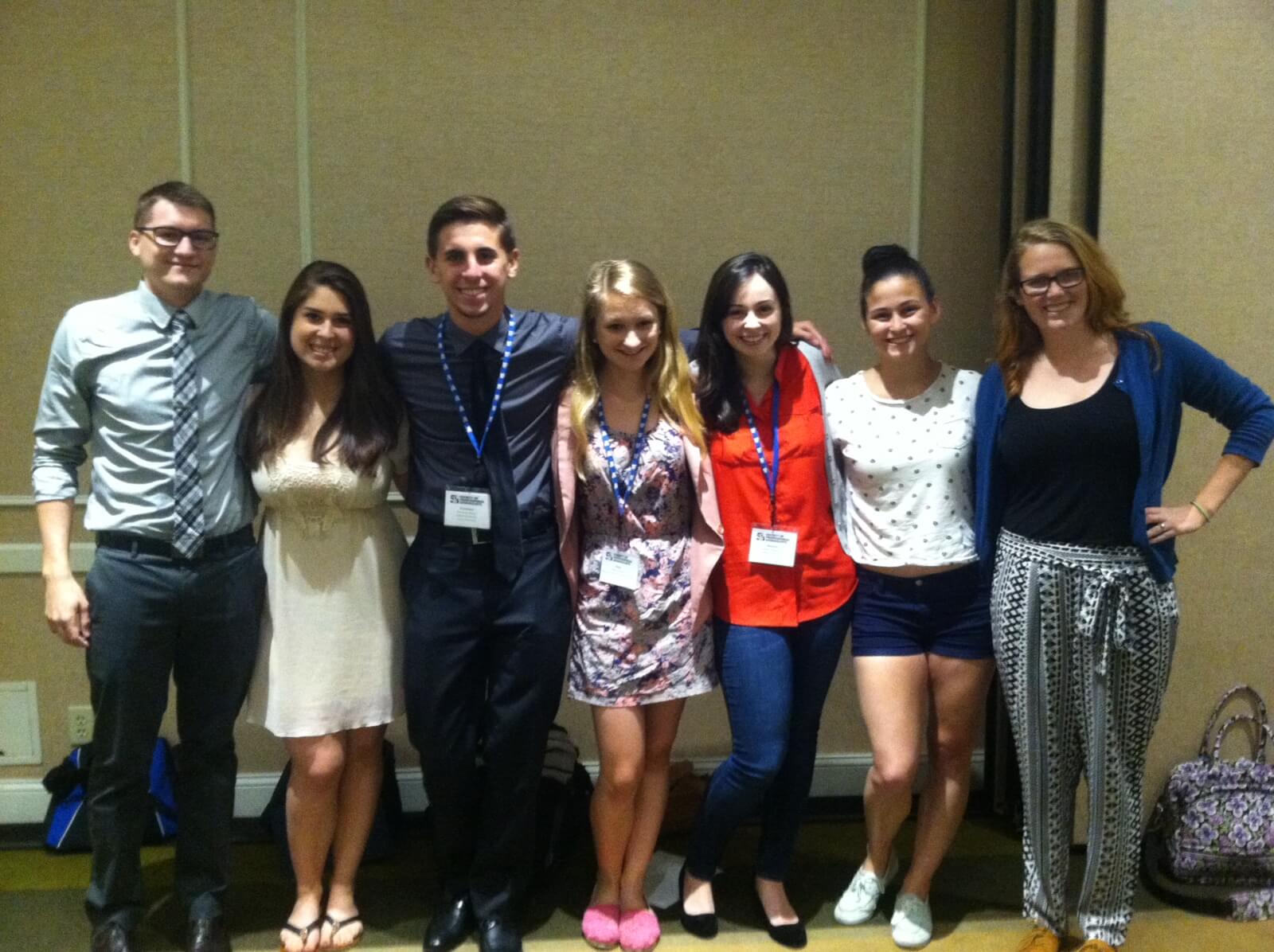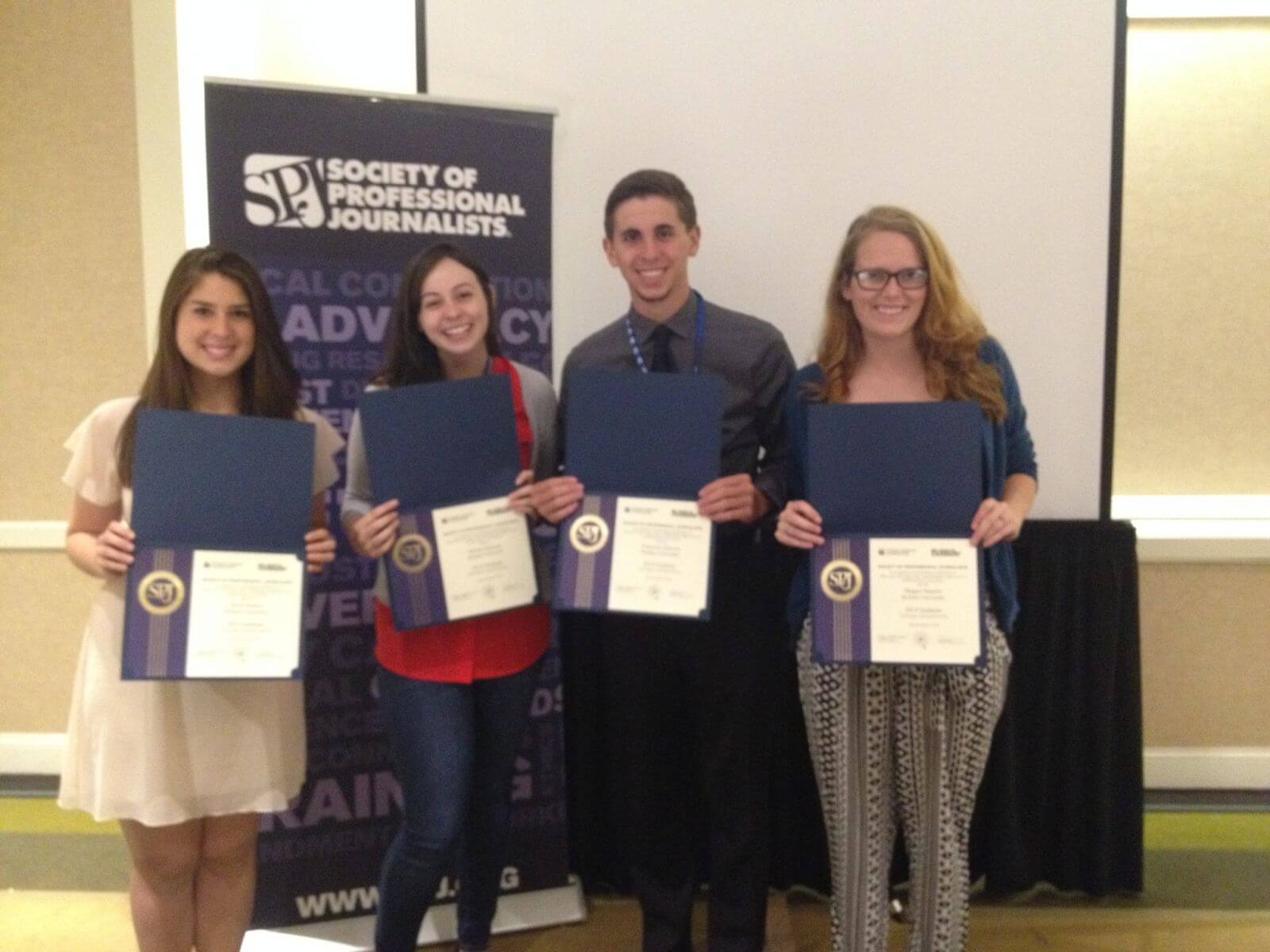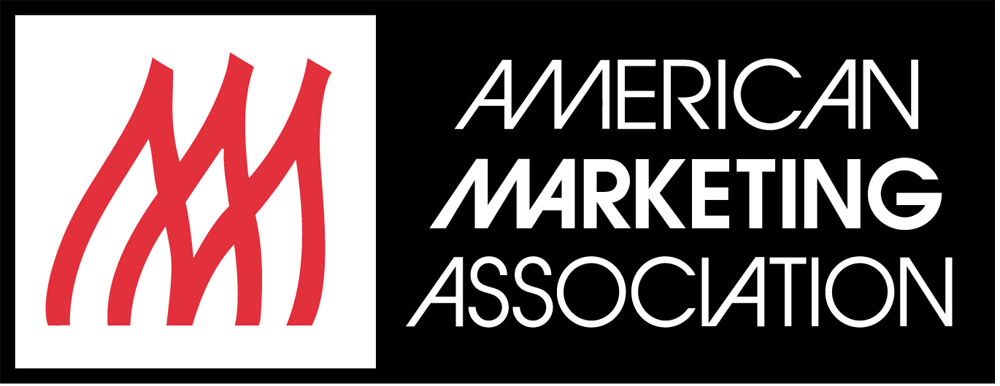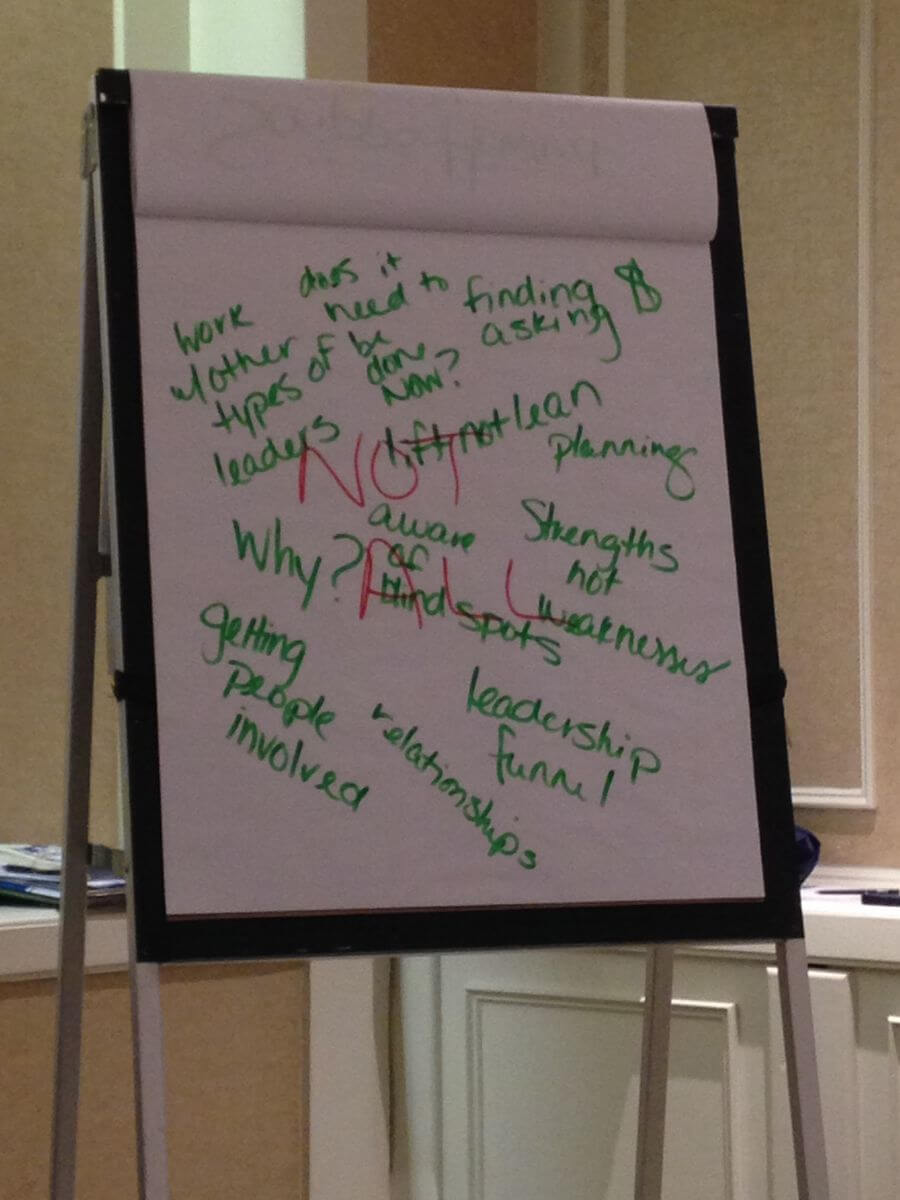
When I received an email from a fellow journalism major about launching a chapter of the Society of Professional Journalists (SPJ) on our campus, I frankly had no idea what it was. The more I looked into it, the more I wanted to get involved. Today our chapter is just getting started, but we already have quite a few members and we even attended an SPJ leadership conference. (Yup, that’s us above wearing the lanyards).
When I spend time with other journalism majors through the club, it feels like we’re a family, and we’re all in the same boat. We divulge our internship horror stories, exchange tips for getting clips and debate the future of journalism.
Career-savvy undergrads can get involved in their field long before graduation. Pre-professional organizations offer that opportunity. Underrated and barely discussed on campus–here’s everything you need to know about jump starting your career.
1. Easy to start your own chapter
National organizations have a simple goal: to expand. As a result, they usually make it easy to start a new chapter. If you think your field deserves to be represented on campus, search the depths of the Internet and see if there is an organization that suits your needs, or ask professors within your department. They may be part of a professional chapter and can help you get started.

Public Relations Student Society of America (PRSSA): PRSSA is a student organization that works in conjunction with the Public Relations Society of America (PRSA). They hope to “advance the public relations profession by nurturing generations of future professionals.”
2. Endless resources
National organizations have a wealth of resources available to all of its chapters, including internship databases (invaluable for your internship-crazed members). They also provide programming ideas. SPJ’s site has a “Program in a Box” feature where you can order everything you need for your meetings. Finding entertaining programs to keep members engaged is tough, so utilizing the organization’s ideas saves a ton of time.

Phi Alpha Delta (P.A.D): P.A.D is a law fraternity for both law and pre-law students.
3. Conferences = Away Weekend of Fun
Club meetings can be fun, but nothing beats spending a weekend in a hotel with your friends. Most professional organizations host at least one national conference where its members (including pre-professional student chapters) come together and learn from one another. SPJ holds an annual conference called Excellence in Journalism and a collection of smaller gatherings throughout the year. Spending a weekend in Nashville networking, learning and making new friends? Yes please. I learned a lot, met fellow student journalists as well as seasoned professionals and stayed in a beautiful hotel.

The Society of Professional Journalists (SPJ): As a national organization, SPJ tries to “improve and protect journalists.”
4. Networking with the Big Kids
Pre-professional clubs help you rub elbows with the “real-world” members, aka the professionals. By being part of an organization geared toward both students and professionals, you’ll find your backpack stuffed with business cards and your LinkedIn overwhelmed with new connections from the conferences. These connections can help you get your foot in the door for your first job. Networking is less terrifying when you already have something in common.

American Marketing Association (AMA): AMA is one of the largest marketing associations in the world.
5. Bonding with the future movers and shakers
By joining (or creating) a club geared toward your dream, you meet like-minded people. Nothing is quite as comforting as sharing internship frustrations or voicing concerns about finding a job after college. Plus, odds are if people in the organization have career aspirations in common, they will probably have other things in common as well. These are the peers who will help you out when you need a second pair of eyes on your resume or an introduction for that internship on The Hill they had last summer. By being part of a pre-professional club, classmates become future colleagues and even friends.

Phi Delta Epsilon (PhiDE): Phi Delta Epsilon is a fraternity for students interested in the medical field. While the organization was originally for only medical students, PhiDE now has over 50 pre-med chapters all over the country.
6. Resume Swag
By adding a pre-professional organization on your resume, you display a deep dedication to your field. Your interviewer will most likely be familiar with the organization and want to hear about your involvement. Having “founding member of a campus chapter of the Society of Professional Journalists” is certainly a conversation-starter.

American Society of Civil Engineers (ASCE): ASCE is an organization for professionals in the field of civil engineering, as well as the students that will enter the field in a few short years. It is the oldest national engineering society in the country and boasts over 145,000 members.
7. Learn from the experts
Pre-professional clubs often bring in guest speakers. This means insider advice on achieving success in your industry. Not to mention, a glance at your future career. Whether it’s a guest speaker or a workshop for your craft, pre-professional clubs teach you the skills you’ll need for entering your professional field.

Zeta Phi Eta: Zeta Phi Eta is a professional fraternity for the Communication Arts and Sciences. Their mission includes providing a “climate in which members may develop sound professional philosophies.”



















